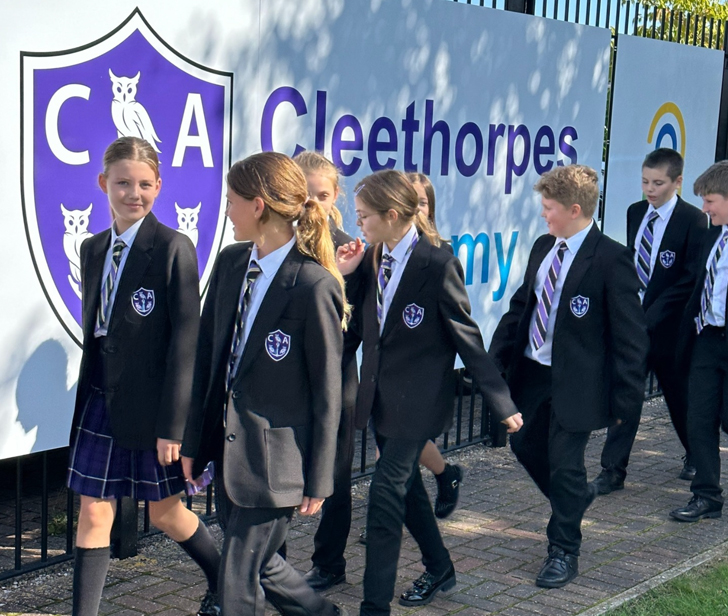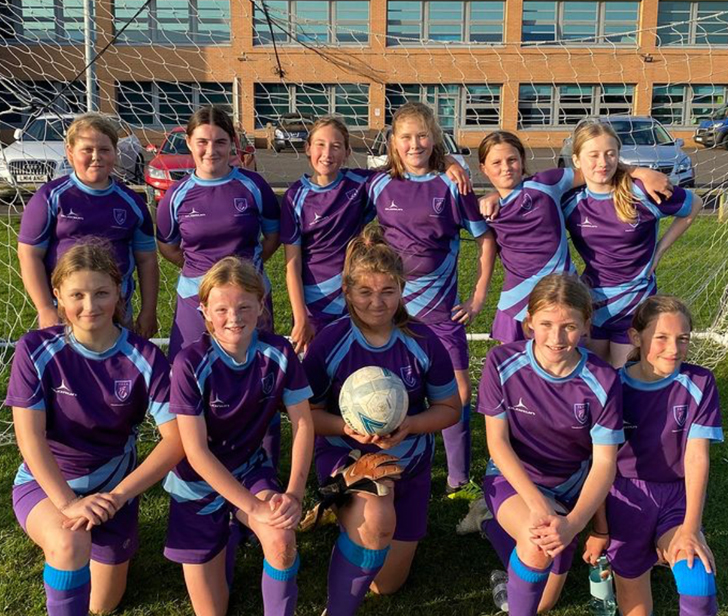Science
- Science
- Ethos & Values
- Knowledge & Skills
- Resources & Facilities
- Courses & Qualifications
- GCSE Combined Science & Separate Science
- Learning Outside The Classroom
- Where Does This Take Me In The Future?
Science
Science is a key subject at Cleethorpes Academy. It develops thinking skills as well as a practical approach to problem solving. These skills are essential both in the workplace and for personal decision-making. Students develop skills through studying Biology, Chemistry and Physics equally across KS3 and 4 and are able to think independently, reason, solve problems and assess risk. Students are encouraged to understand the links between subject areas and how science can be used to explain what is occurring in the world around them. This is enhanced by practical tasks where students progress through a cycle of hypothesis or prediction, practical experimentation emphasising accurate measurement, observation and accurate recording, analysis, and evaluation. Lessons aim to help them to answer scientific questions about the world around them, always seeking to make learning relevant to real world scenarios.
Please explore these pages to find out more about what we offer here at Cleethorpes Academy.
Ethos & Values
Our science curriculum exposes students to a broad range of subjects and learning opportunities to deepen their educational experience and build a solid foundation of subject knowledge and skills. We aim to;
- Produce not only well-qualified scientists, but also young people who can use their knowledge, understanding, application and skills throughout adult life.
- Enable students to experience an exciting and creative climate for learning Science, regardless of key stage and ability.
- Maintain the Science curriculum area at the leading edge of educational innovation.
- Raise the overall standard of teaching and learning in Science.
- To maintain a philosophy of continuous improvement in every aspect of the Science curriculum area and are committed to ensuring that all students make rapid and sustained progress.
- To support academy and national strategies in literacy, numeracy and the use of ICT within the context of Science.
Knowledge & Skills
The aims of these qualifications are to encourage students to over time:
- Acquire a systematic body of scientific knowledge, and the skills needed to apply this in new and changing situations in a range of domestic, industrial and environmental contexts;
- Acquire an understanding of scientific ideas, how they develop, the factors which may affect their development and their power and limitations;
- Plan and carry out investigative tasks, considering and evaluating critically their own data and that obtained from other sources, and using ICT where appropriate;
- Use electronic (internet, databases, simulations, etc.) and/or more traditional sources or information (books, magazines, leaflets, etc.) to research and plan an investigation;
- Select, organise and present information clearly and logically, using appropriate scientific terms and conventions, and using ICT where appropriate;
- Interpret and evaluate scientific data.
The OCR Twenty First Century Science suite studied here at Cleethorpes Academy comprises of three subjects which share common material, use a similar style of examination questions and have a common approach to skills assessment. Students work scientifically across all three disciplines covering a broad range of experimental skills, which build upon and deepen the scientific knowledge and understanding covered in lessons.
GCSE Biology covers the major animal and plant systems in a traditional way, but also introduces the students to important breakthroughs of recent years, such as cloning and genetic engineering. Topics studied are: You and your genes, keeping healthy, living together – food and ecosystems, Using food and controlling growth, the human body – staying alive and life on Earth – past, present and future.
GCSE Chemistry aims to give students a sound knowledge base, as well as industrial and practical applications of chemistry. Topics studied are: Air and water, chemical patterns, chemicals of the natural environment, Material choices, chemical analysis and making useful chemicals.
GCSE Physics provides students with a thorough knowledge of the subject, and develops their understanding through the use of examples taken from a modern everyday context. Topics studied are: Radiation and waves, sustainable energy, electric circuits, explaining motion, radioactive materials and matter – models and explanations.
GCSE Combined Science combines Biology, Chemistry and Physics and emphasises scientific literacy - the knowledge and understanding of which students need to engage with as informed citizens around science-based issues. It features many of the major scientific theories in a way that encourages students to appreciate their importance in everyday life and links to historical influential figures that have shaped our ordinary lives. The course also explores how scientific information is obtained, how reliable it is, what its limitations are, and how this information helps society to make important personal and global decisions.
The GCSE also develops students' ability to plan and carry out scientific investigations and their understanding of the role of experimental work in developing scientific explanations.
Topics are: You and your genes, keeping healthy, living together – food and ecosystems, Using food and controlling growth, the human body – staying alive and life on Earth – past, present and future. Air and water, chemical patterns, chemicals of the natural environment, Material choices, chemical analysis and making useful chemicals. Radiation and waves, sustainable energy, electric circuits, explaining motion, radioactive materials and matter – models and explanations.
Our KS3 Science syllabus is based on the Activate scheme of work. It is designed to provide structure and clarity to the National Curriculum and helps students gain knowledge of key scientific concepts before transitioning to GCSE.
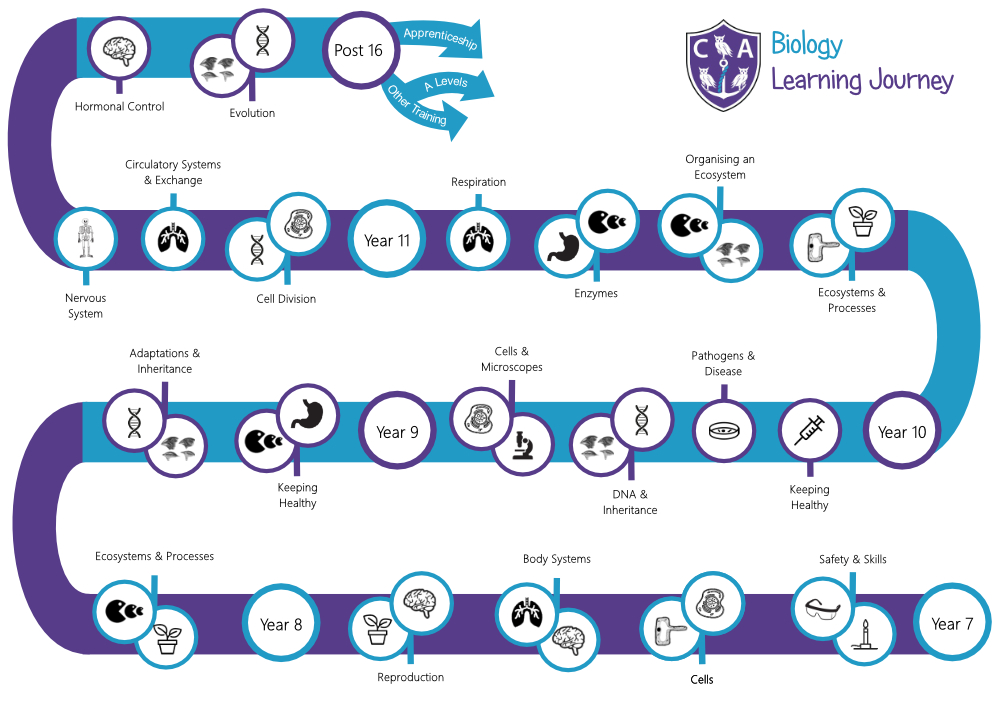
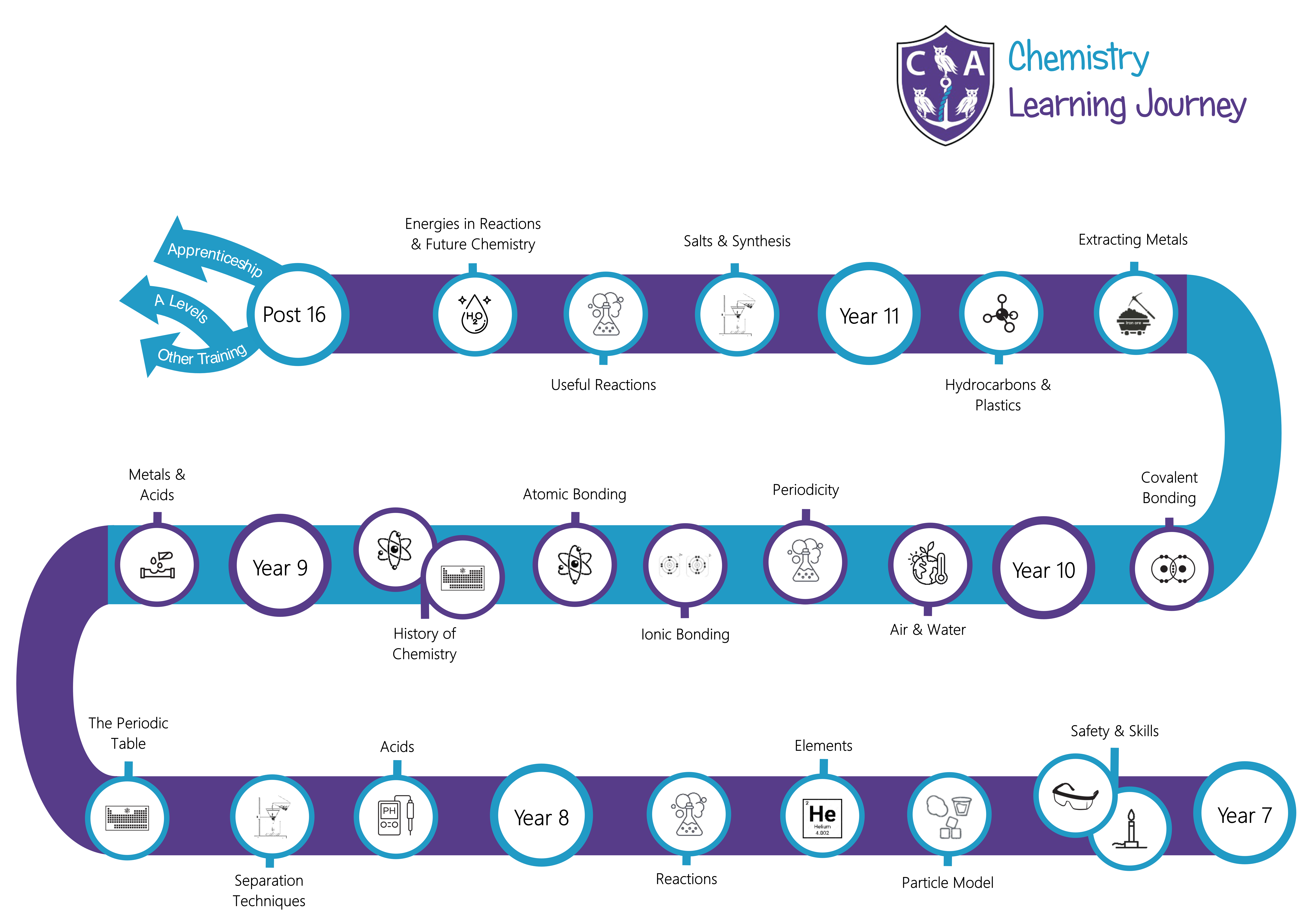
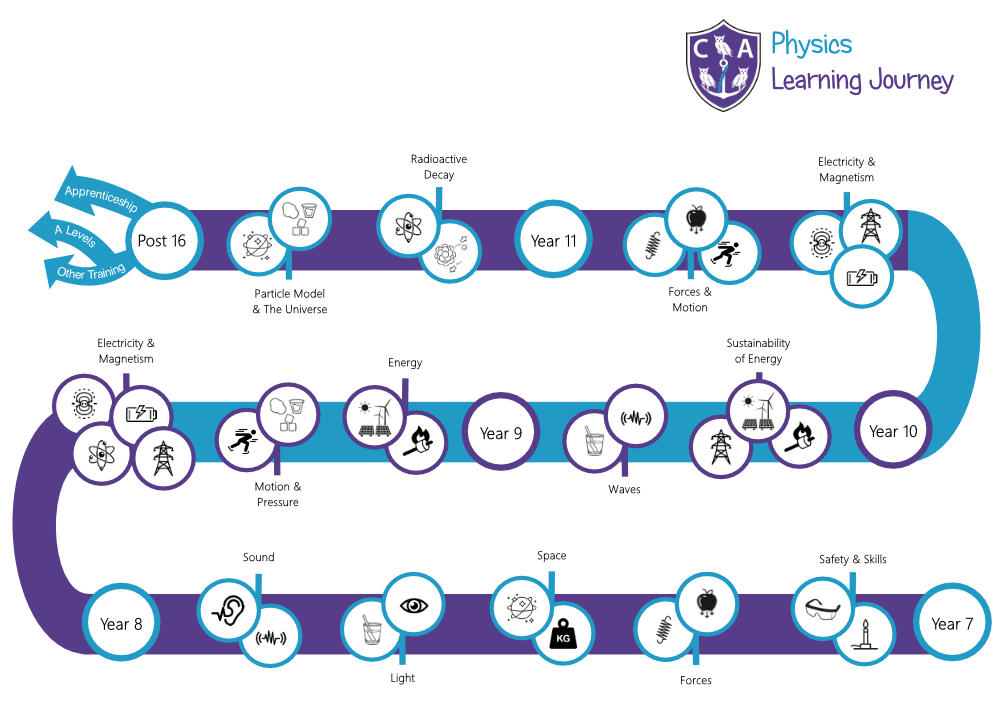
Resources & Facilities
The Science Curriculum Area consists of seven general teaching laboratories. In addition, there are two very well-resourced preparation areas and access to an ICT suite and laptops.
GCSE Courses & Qualifications
Combined Science (Course code J260):
During their studies for Combined Science GCSE students have 6 lessons per week, two each in Biology, Chemistry and Physics. There are four examinations: Three of these are for the individual subject areas (Biology, Chemistry and Physics), and the fourth assesses Data Analysis and practical skills.
Separate Science (Course codes: Biology J257, Chemistry J258, Physics J259):
During their studies for the Separate Sciences students have 9 lessons per week on each science, Biology, Chemistry and Physics. There are two examinations for each of the GCSE Sciences (Biology, Chemistry, and Physics), each worth 50% of the final grade. Each paper will cover all of the topics from the separate sciences.
GCSE Combined Science & Separate Science
Science is a core subject in the National Curriculum and, as such, must be studied by all to the age of 16. A broad and balanced GCSE Science curriculum can be followed at Cleethorpes Academy in Years 10 and 11 using the OCR Twenty First Century Science specification. The Science Faculty comprises a full complement of specialist science teachers experienced in the teaching of Science GCSE courses.
All of us, as citizens, need to be able to cope with the science that shapes our lives. We are on the receiving end of scientific ideas and technical information in many different roles such as worker, householder, parent, patient, voter or juror.
Some young people aspire to be scientists, or to work in careers where knowledge of this subject is essential; educating the next generations of science practitioners is crucial.
How many GCSE grades will students get?
A student taking Combined GCSE Science will be awarded two GCSE Science levels. A student taking separate GCSE Science will be awarded a GCSE level for each science taken - 3 in total. Because the assessment of the courses are independent, these grades may be different.
Practical Skills
Throughout the year students will complete a broad variety of investigations. Students will be able to enhance their ability to plan and carry out practical investigations and their understanding of the role of experimental work. They will also be provided the opportunity to develop their data analysis skills.
Examinations
| GCSE Science Combined | 4 exams: Biology worth 26.4% Chemistry worth 26.4% Biology worth 26.4% Combined Science 20.8% |
|---|---|
| GCSE Biology | 2 exams: Breadth in Biology worth 50% Depth in Biology worth 50% |
| GCSE Chemistry | 2 exams: Breadth in Chemistry worth 50% Depth in Chemistry worth 50% |
| GCSE Physics | 2 exams: Breadth in Physics worth 50% Depth in Physics worth 50% |
Learning Outside The Classroom
Catch Up
During the year students are invited to attend catch-up sessions whenever necessary as well as for students to build on and improve their classwork. Students can come in and do their work in a relaxed atmosphere with one to one help from the staff.
Revision Sessions
Revision sessions are run for KS4 throughout the year with a particular focus at Year 11; these sessions take place after Academy hours, at weekends and during half-term. These sessions cover all GCSE content and allow students the opportunity to develop and strengthen their scientific knowledge and understanding of content in preparation for GCSE examinations.
Enrichment Activities
Our KS3 School Science club runs weekly by several experienced members of staff and includes such activities as bridge building, aircraft designing, potion creating and seasonal activities.
Students in all year groups take part in regular STEM activities organised with future careers in mind and linked to local industries. We have an Eco Club and a Homework Club running to address students interests and collaborate with other departments..
Where Does This Take Me In The Future?
GCSE qualifications aim to aim to develop learners who have the knowledge, skills, and the creativity to become the Scientists of tomorrow. Here at Cleethorpes Academy, we will:
- Provide opportunities for students who may wish to be employed in the Science industry or organisations that use science, to develop knowledge and skills in specific sciences.
- Provide a good progression route to more advanced qualifications.
- Enable a clear pathway post 16 onto local apprenticeship courses.
